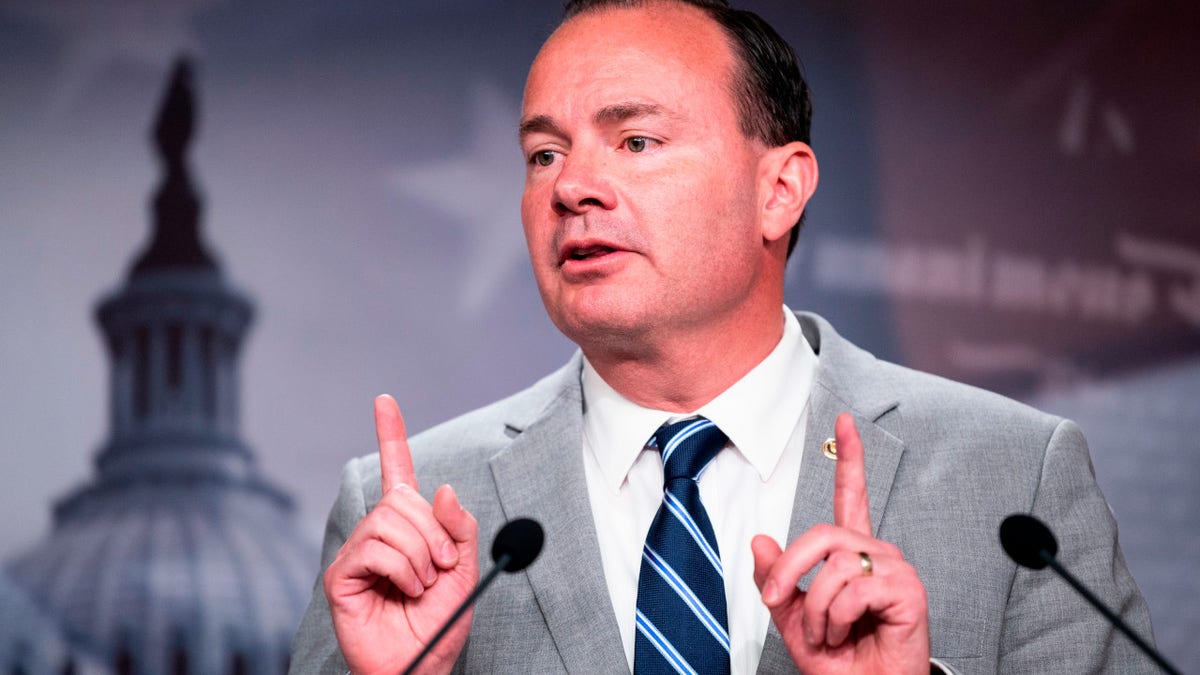The post-Pelosi era begins, what's next?
Republicans could learn a few things from their opponent.
The House on Thursday passed the Respect for Marriage Act, which will require the federal government to recognize same-sex marriages performed in states where they are legal but does not go as far as some Democrats wanted.
The bill won approval in a 258-169 vote, after the Senate passed it 61-36 last week. The legislation now heads to the White House for President Biden's signature into law. Despite warnings from Republicans in both chambers that the bill doesn't do enough to protect religious liberty, 39 House Republicans voted for the bill.
Supporters of the bill hailed it as a safety net in the event the Supreme Court reverses a ruling that says the Constitution guarantees the right of same-sex couples to get married.
"This legislation is the latest step in House Democrats' fight to win full equality for LGBTQ Americans and forge a more perfect union that our children, and their children… all of our children deserve," outgoing Speaker Nancy Pelosi, D-Calif., said Thursday from the House floor.
"I find it deeply poignant, that as we prepare to bring the 117th Congress to a close, we are on the cusp of a great bipartisan moral victory in defense of a fundamental right of all Americans, a victory that will provide stability and reassurance to the millions of LGBTQ and interracial families that have come to rely on the constitutional right to marry," added House Judiciary Chairman Rep. Jerry Nadler, D-N.Y.
KEY GOP SENATOR SAYS SCHUMER'S ASSAULT WEAPONS BAN 'NO LONGER ON THE TABLE'

The House on Thursday passed the Respect for Marriage Act. (Todd McInturf/Detroit News via AP)
The Respect for Marriage Act was whipped up by Democrats in the Senate after Supreme Court Justice Clarence Thomas issued a concurring opinion in the case Dobbs v. Jackson Women's Health Organization, which overturned Roe v. Wade. Thomas said that in light of the decision to let states decide abortion, the court should also "reconsider all of this Court’s substantive due process precedents," including the Obergefell v. Hodges case that took same-sex marriage out of the hands of states and said it is a right guaranteed by the Constitution.
The Respect for Marriage Act says the federal government will recognize same-sex marriages performed in states where they are legal, and includes a similar protection for interracial couples should the Supreme Court overturn a decision on that issue, Loving v. Virginia, that bans states from outlawing these marriages.
Republicans said the bill was an unnecessary overreach that addressed a nonexistent threat.
"The Democrats want Americans to believe… that at any moment the Supreme Court could step in and overturn its opinions on Obergefell and Loving. It's just not true. The Supreme Court is not poised to overturn its opinions in either of those decisions," Rep. Jim Jordan, R-Ohio, said from the House floor.
Jordan added that the Supreme Court said in the Dobbs opinion, which overturned Roe v. Wade, explicitly stated that decision should not be misunderstood, or mischaracterized to cast doubt on precedents that do not concern abortion.
PROGRESSIVES GRUMBLE AS RESPECT FOR MARRIAGE ACT ADVANCES: 'I HATE THE SENATE BILL'

The Respect for Marriage Act is the result of months of negotiations between both parties in the Senate and was introduced despite calls from some progressives to make the measure go further. (Chip Somodevilla/Getty Images)
The bill is the result of months of negotiations between both parties in the Senate and was introduced despite calls from some progressives to make the measure go further. The bill would not go so far as to require states to permit same-sex marriages, which is what has some progressives disappointed.
When the bill was in the Senate, Sens. Susan Collins, R-Maine, and Tammy Baldwin, D-Wis., wrote an amendment aimed at adding religious liberty protections that the Senate approved. But some Republicans and conservative groups say that amendment doesn’t go far enough to protect people who fear litigation or government retaliation for their belief in traditional marriage.
BIDEN WARNED ON ‘HEAVY-HANDED' ESG POLICIES HITTING COMPANIES, FAMILIES
"While the tension between same-sex marriage and religious liberty might not be obvious to many, legal experts have long understood that there is a legitimate risk that, without robust protections in place, federal recognition of same-sex marriage could — read against the backdrop of various federal statutes and the way they have been interpreted by the Supreme Court — inflict harm on those who, for reasons rooted in sincerely held religious belief or moral conviction, do not embrace same-sex marriage," Sen. Mike Lee, R-Utah, wrote in an op-ed last week.
Lee also wrote an amendment with stronger religious freedom protections, but it was ultimately rejected.

Sen. Mike Lee, R-Utah, proposed changes to the bill that the Senate rejected. (Bill Clark/CQ-Roll Call, Inc via Getty Images)
Tim Schultz, president of the 1st Amendment Partnership, told Fox News Digital that the passage of RMA is about "political realism," and that both sides had to cede some ground in order to turn the language into law. "I think that this is actually a big political deal," Schultz added.
CLICK HERE TO GET THE FOX NEWS APP
"I think that legally the RMA is not a huge deal. And I think that's why people are hyperventilating for no good reason. But I think, like, politically, it's a very big deal. Because I think it shows that there is a kind of center that wants to get things done on this issue,' Schultz said.













































